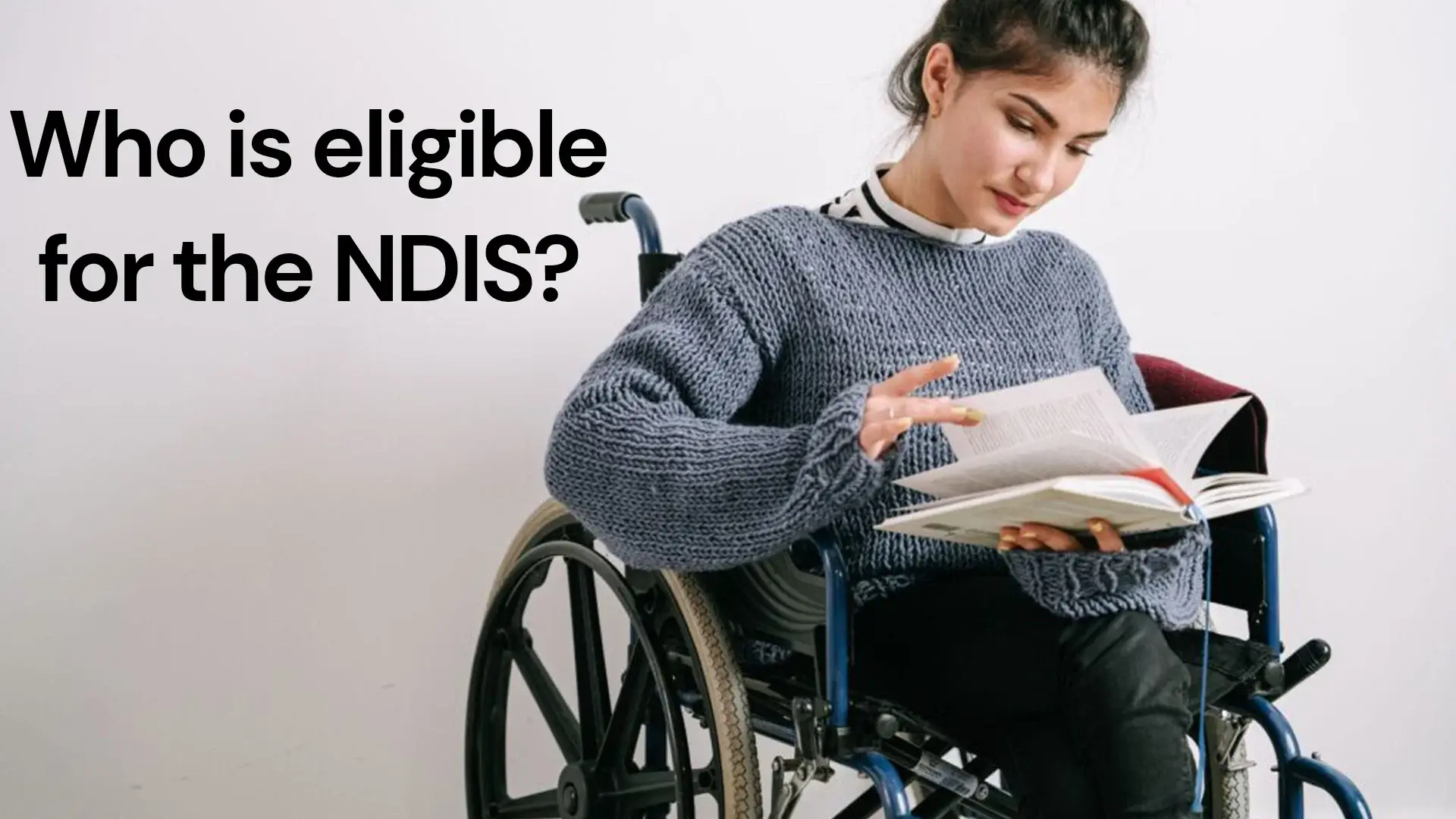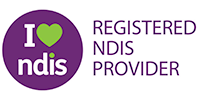Getting started with your NDIS journey
Living with a disability or impairment necessitates finding the tailored support necessary to lead the life you envision. This support plays a pivotal role in enhancing your independence, optimising your work or studies, and fostering active engagement in social pursuits.
Should you or a cherished individual seek disability support to navigate the intricacies of daily life, the National Disability Insurance Scheme (NDIS) stands ready to extend a helping hand. Governed by the government, this program allocates funds for expenses related to disabilities.
Eligibility for this initiative hinges on factors such as age, residency status, and the extent to which your impairment affects your daily activities. Should uncertainty cloud your eligibility status, follow the sequential process below to ascertain your qualifications and embark on the journey towards the assistance you need.
Step 1: Age
Are you between 7 and 65 years old?
The NDIS supports those between the ages of 7 and 65. If this is you, you can go on to the next step. If you fall outside of this age range, there may be alternative options for support.
Are you looking for support for a child under 7?
The early childhood early intervention (ECEI) approach provides support for children under the age of 7 who have a disability or developmental delay. The goal of ECEI is to help your child develop the skills and knowledge they need to participate in mainstream settings. You can find support through early childhood partners by reaching out to them directly; your child does not need a diagnosis to get help.
Step 2: Residency
Are you an Australian citizen, a permanent resident, or a holder of a protected special category visa?
The NDIS supports Australian citizens, permanent residents, and holders of protected special category visas. If you fall into this category, you can move on to the next step. If you don’t fall into one of these categories, although you won’t be eligible for the NDIS, other support may be available.
Step 3: Location
Do you live in Australia?
To access the NDIS, it is essential that your primary residence is in Australia and that you spend the majority of your time within the country. You will be asked to provide documentation as evidence of your Australian residency. Typically, your Centrelink record will serve as acceptable proof. In certain cases, you might need to present proof of your address, employment status in Australia, or property ownership within the country. Additionally, you will need to specify the amount of time you spend overseas.
It’s important to note that you are still permitted to travel. The NDIS may simply require you to respond to enquiries about the reasons for your travel and the duration of your stay abroad. This is done to ensure that Australia remains your primary place of residence.
Step 4: Meeting Disability Criteria
Is your disability attributed to a permanent impairment?
To be eligible for the NDIS, your disability must stem from a permanent impairment. This impairment could be intellectual, cognitive, neurological, sensory, physical, or psychosocial in nature.
An impairment is characterised by a significant alteration or loss in any of the following domains:
- The functionality of your body.
- The structural composition of your body.
- Cognitive processes and learning abilities.
- Neurological functioning is how your body operates.
- Sensory faculties, such as sight and hearing,.
- Physical capabilities, encompassing bodily movement.
- Psychosocial aspects: when your mental well-being hampers daily activities (even if it fluctuates).
Not sure if you’re eligible for this step? If you have evidence of all of the following, you meet the disability requirements:
- An impairment that gives rise to your disability.
- The anticipation of permanence regarding your impairment.
- The inability, due to your enduring impairment, to execute one or more of the subsequent activities: mobility, communication, social interaction, learning, or self-care and management.
- The influence of your permanent impairment on your capacity to work, learn, or engage socially.
- A probable necessity for lifelong support under the NDIS.
It’s crucial to establish that your impairment is expected to persist throughout your life. While there might be periods of lesser impact, occasionally accompanied by more pronounced effects, the perpetual influence on your life characterises its permanence. Your eligibility might be influenced if your impairment is temporary, if you are undergoing treatment, or if unexplored treatment options remain available.
Do you consistently require tailored support for your daily tasks due to your disability?
If yes, you may be eligible.
Step 5: Early intervention
Do you require assistance now to lessen the need for support in the future? Alternatively, do you require extra assistance at present to enable your family to acquire the necessary skills for your future support? If your response is affirmative, you could qualify for eligibility.
If this does not apply to your situation, seeking assistance via the NDIS might not be the most suitable choice. It’s advisable to reach out to your community partner for information regarding other potential forms of community and government assistance that might be accessible.
Step 6: Other considerations
The final consideration involves assessing the availability of medical treatment options for your impairment. While the NDIS can provide funding for support aimed at mitigating or occasionally overcoming the impact of your impairment on your daily life, it does not cover any medical interventions aimed at treating the underlying impairment.
The NDIS will request that your treating professional verify that no medical, clinical, or other viable treatments are accessible to alleviate your impairment. Additionally, an enquiry will be made into whether there are any recognised and evidence-based treatments that could be suitable for addressing your impairment. For instance, a condition such as obesity is unlikely to be considered permanent, given the existence of treatment avenues like dietary adjustments and lifestyle modifications.
I am eligible; how do I apply for the NDIS?
Once you’ve reviewed the eligibility criteria and believe you meet the requirements for the National Disability Insurance Scheme (NDIS), it’s time to get in touch with the National Disability Insurance Agency (NDIA).
You can initiate contact with the NDIA by calling 1800-800-110 to discuss your potential eligibility for the NDIS. If they determine that you could qualify, they will send you an access request form. When returning the access request form, remember to include the necessary supporting evidence.
You have a few options for submitting the forms and evidence:
Send them via email to NAT@ndis.gov.au.
Mail them to GPO Box 700, Canberra, ACT 2601.
Submit them in person at your local NDIA office.
After you’ve submitted your application, the NDIS will assess your eligibility and either make a determination within 21 days or contact you for additional information if needed.



